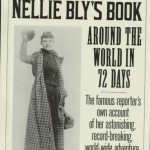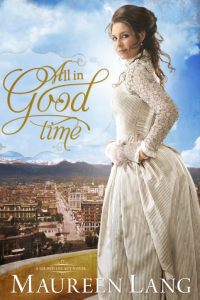Maureen Lang's Blog, page 10
December 3, 2012
They’ll Know Us By Our Love . . .?
 Like many Christians around the world, my husband and I are blessed to belong to what’s known as a small group. Our particular huddle meets every other week to study the Bible, encourage and support one another, pray for each other.
Like many Christians around the world, my husband and I are blessed to belong to what’s known as a small group. Our particular huddle meets every other week to study the Bible, encourage and support one another, pray for each other.
As often happens when I’m with this group, one of our members said something that struck me as profound. She was hesitant at first, even saying it might not be the best analogy, but as soon as I heard it I thought it was exactly on target.
We were discussing the difficulties about talking to others about our faith. A few of our members have regular opportunities to do so, and are always hoping to be a good representation of our faith. Sadly, we’re aware of the quote about more people being attracted to Christianity if it wasn’t for those darn Christians.
My friend’s comment is a direct answer to such a notion. Here’s what she said:
Why do we blame God for how badly Christians represent Him? Think of it this way: If we elect a senator or a congressman who ends up misusing whatever power he was elected to exercise—just google how many elected officials are currently under investigation for a variety of legal offenses—we don’t blame the constitution or what it asks us to believe in, we blame the person who was unable to live up to its standards.
Now it’s true that we as Christians are temples of the Holy Spirit, empowered by God. But we’re also works in progress as He seeks to mold us into someone more like the perfect example Christ represented. Perhaps if we had the luxury to examine the lives of most Christians and their deeds, we might see an upward trajectory toward that goal. But it would hardly be instantaneous, and it wouldn’t be without failures along the way.
And yet the world expects Christians to be like Christ, despite the fact we’re still surrounded by a world that often seeks to tempt, tamper and even thwart what we know as Christians we should do.
I’m not excusing those of us who fail to consistently represent Christianity and a God who loves each and every one of us, even those who deny His existence. But I am now more ready to defend God when I fail. We should no more blame God for the failure of Christians than we should the constitution for those many corrupt politicians.
Somehow, this thought inspires me to do a better job of representing God, simply because it reminds me of the forgiving nature of our loving God. Hopefully it’s been a blessing to you on this start of another new week!
November 26, 2012
Creating Character
Since this blog is written by a novelist, you might think there is an “s” missing on the title of today’s posting. But that s is missing by design. For me, when I strive to create characters that I want to spend time with, it’s a reminder of the kind of character I need to strive for in myself.
One of the places I often find inspiration for character growth is sitting under the wonderful teaching at my church. Over the weekend, my pastor talked about the way our world assigns value to a person. The world values:
Authority
Accumulation (the natural evidence of wealth—possessing lots of stuff)
Accomplishment
Attraction (in looks or personality)
In Christian fiction I can use the pursuit of such things to deepen my character’s faith journey. On one level these are things we naturally seek, some way of validating ourselves in the world’s eyes. But is that what we should be doing, my Christian characters and I?
One of the questions my pastor asked provides another layer for potential conflict: Is your identity too closely linked to one of these worldly values?
As usual, real life should be mirrored in fiction—at least in character traits—so these are questions I hope my readers will ask even as I ask myself such things. They’re also questions I like to ask as I’m reading a book. Are the characters growing toward a deeper commitment not only to each other if it’s a romantic novel, but in their spiritual life? Searching for specific traits like the ones outlined above will help me to define some of the character layers that can work in so many plot lines.
The answer to such dilemmas, both in life and in Christian fiction, is to focus our identity not on ourselves, but on what God would have us be. Living not for ourselves, but for Him, trusting Him, giving credit to Him, letting life be less about us and more about Him. Something more easily done in characters I can—somewhat—control!
If you’d like to see the entire sermon, click here. Just scroll down to “Most Recent Message.”
So now I’m off to start the week knowing that what pleases God usually refreshes me—so I’ll be keeping this sermon in mind.
November 19, 2012
Is Your Life Messy Enough?

My Messy Desk
Yesterday in church my pastor spoke about evangelism. Oh yeah, that topic is right up there with Giving as far as most popular subjects in a sermon.  As usual, though, I not only learned something but was blessed by the teaching.
As usual, though, I not only learned something but was blessed by the teaching.
The topic was especially interesting to me as I’d just sat in on a teaching video the night before on the same subject, quite by coincidence. One of the areas both the sermon and the taped workshop had in common was to stress the importance of relationship. Not just preaching my faith, but encouraging interaction and friendship so a faith conversation would not only be more enjoyable, but more effective. How exactly do you go about showing God’s love to someone if you don’t . . . well, love them?
During the course of the sermon, my pastor said evangelism can get messy. Few people feel really confident about talking to others about faith, and you can put me in that camp. But just because something’s messy doesn’t mean we shouldn’t do it.
So I was talking to my husband about this and he realized evangelism and engineering definitely have this “messy quotient” in common. When his engineering students are building a robot, it’s a given that they’ll make mistakes at first. Putting together a robot is a bit more complicated than a Lego product or soldering a few parts together, as the students quickly learn. They succeed, but not before a few messy attempts.
Writing is like this too. I’ve been taking my time putting my new project together. It’s set in 1848 Chicago, so the research material is close by (I live in the Chicago area). But as with each new story I create, there is always an initial period where I’d almost rather do anything than write a first draft. I don’t yet know my characters, so I tend to pile on more research rather than just sitting down to write and get to know these fictional people. Once I finally do sit down to write, my first drafts are always messy. I take one avenue only to find out I’m not happy with that direction; I may salvage parts of it, and happy if I can. But my beginnings are always rewritten more often than any other part of my novels because they’re especially messy.
And so it is with many other things in life, too. As a parent, especially of a handicapped child, it’s easier for me to do everything for him than to let him to do things for himself. I can put his shoes on him much quicker than he can do it himself . . . and yet it’s hardly fair to him if I do for him what he really can do for himself. Who is going to put his shoes on for him after I’m gone? So I’ve had to let that get messy, too. Sometimes the Velcro closings on his shoes don’t work over a shoe tongue that’s all bunched up. And it looks messy. But hey, the shoes are on and that messy tongue just doesn’t bother him, so why should I complain?
This week I’m not going to be afraid to let some areas of my life get messy. If I have to rewrite my beginning again, that’s okay. And if I invite someone to church and they say no, it may feel like I messed up. But that’s okay.
So if you find yourself in a mess today, maybe that’s right where you’re supposed to be.
PS: If you’re looking for the winners of last week’s contest for a free Advanced Reader Copy of my upcoming title All In Good Time, click here for last week’s posting with the names of winners listed on the Punchtab graphic. Congratulations to the winners! If you’d like a chance to win a “real” edited version, I’ll be holding more contests as the release date draws nearer and once the final copies are available. So keep in touch!
November 12, 2012
An Escape From The News
It seems every time I turn on the television, they’re talking about the dire fiscal cliff we face as a nation. That’s why I’m offering an escape from all this bad news. I know it’s not a fix, and my escape is only temporary, but I’m offering three Advance Reader Copies of my upcoming book to help anyone suffering the same dour feelings that seem so prevalent lately.
I think it’s true that each book an author writes becomes their favorite while they’re writing it, at least that’s mostly been the case for me. My next novel, All In Good Time, was not only fun, but even as I’m nearly one hundred pages into a new project, I’m still thinking back on this one as a favorite. Always a good sign!
Another good sign was the fact that one of my beta readers—my sister who is an avid reader of Christian fiction—gave me a big thumbs up with the most welcome compliment ever: This is one of your best!
That sounds like a winning combination, having my oh-so-honest sister tell me she enjoyed it, and my own lingering memories of how much fun this book was to put together. Henry Hawkins, my Scrooge-like banker, was my favorite hero to watch evolve from a hard-hearted businessman to a someone willing to do whatever it takes to win the heroine’s love.
Here’s the wonderful back cover copy, which my editor put together for me:
Dessa Caldwell has a dream: to open Pierson House, a refuge for former prostitutes in Denver’s roughest neighborhood. But after exhausting all charitable donations, Dessa still needs a loan, and nearly every bank in town has turned her down. Her last hope hinges on the owner of Hawkins National Bank.
Henry Hawkins has a secret: though he owns the most successful bank in town, his initial capital came from three successful raids on Wells Fargo coaches. Now he’s the most eligible bachelor in Denver, but to protect his criminal past, he’s built a fortress around his heart. Not even the boldest matchmaking mother can tempt him . . . until the day Dessa Caldwell ventures into his bank requesting a loan.
Though he’s certain her proposal is a bad investment, Henry is drawn to Dessa’s passion. But that same passion drives her to make rash decisions about Pierson House . . . and about whom she can trust. One man might hold the key to the future of her mission—but he also threatens to bring Henry’s darkest secrets to light. As the walls around their hearts begin to crumble, Henry and Dessa must choose between their plans and God’s, between safety and love.
So here’s all you have to do to be in the running: just enter though the Punchtab graphic below. That’s it! No purchase required, and the odds of winning one of the three Advance Reader Copies depends upon the number of people who enter.
Or if you’d like to enter through my Facebook author page, click HERE.
Happy Reading!
And about that fiscal cliff we’re facing . . . Part of me wants to do the ostrich move and bury my head in the sand, but the grownup part insists I mention this here on my blog as another week promises to bring in more news on this same subject.
A friend of mine sent me a link that clearly explains just how disturbing is our national budget situation. I always appreciate things that are easy for an average brain like mine to comprehend, so this fits the bill. Unfortunately it only explains the bad news, it doesn’t give an answer because there apparently is no answer, at least in the short term. It’s five minutes long and worse than that it’s narrated by a retired accountant, which is perhaps second only to a retired scientist as far as entertainment value. But the message is too important to let those details stop anyone from viewing:
Click HERE to view the video about the fiscal cliff.
November 5, 2012
Who Polls Highest In Your Family?
In this season of presidential polling, I thought it might be fun to bring the concept of polling home. Do you have a family member who is consistently in everyone’s good graces? Someone who, like the candidates working so hard to persuade a vote from you, can work the system . . . but of familial love?
Last night I returned from a long weekend away from home. While driving, I began to anticipate rejoining my family. It’s usually the ones left behind who miss the one who is absent, simply because whoever is traveling is so busy with fun or unusual activity and those left behind feel the vacant spot as they go about their normal routine.
So naturally I began to think my family might have missed me, might even be happy to see me the moment I walked in. This is how that moment actually went:
Susie, our Labrador, greeted me at the door, tail wagging, body wiggling in pure joy to see me. Ah! Back in the fold again, what welcome! What happiness! How she’d missed me! This was what it felt like to be taken back in so lovingly.
A moment later, my handicapped son was the first of the two-legged family members to see me. He was looking for someone to turn on the television and so he handed the remote control to me. In his defense, he’s unable to speak so he couldn’t very well tell me he was glad to see me home safe and sound. But a smile, something he’s perfectly capable of, might have been nice; instead he handed me the remote as if I’d come in from the other room, never having been gone. Then my younger son, perfectly healthy, looked up from something he was watching on our Kindle Fire and asked me if he could have the laptop back. (I’d taken it with me.) Finally my husband, who hadn’t heard me come in, did greet me but he was looking for recognition and affirmation about the housework he’d done: no dishes in the sink, vacuumed carpets, things put in order. In retrospect I do believe that’s the best homecoming gift, but in the moment it went past me as I awaited some semblance of joyous reception.
 The dog was the only one whose agenda was centered on someone other than herself. So next time I ask myself What Would Jesus Do, I might follow that up with: what would Susie do? I guess that’s why she always polls most popular family member around here.
The dog was the only one whose agenda was centered on someone other than herself. So next time I ask myself What Would Jesus Do, I might follow that up with: what would Susie do? I guess that’s why she always polls most popular family member around here.
 Due to my website being down for a while during the time we conducted the drawing for Susan Meissner’s newest book, I’m extending the time to join in the drawing. Please leave a comment on this post or last Wednesday’s and I’ll have the name chosen this Wednesday (November 7) for the selected book, The Girl In The Glass. Happy Reading – And thanks again to Susan for providing a free copy of her wonderful new book!
Due to my website being down for a while during the time we conducted the drawing for Susan Meissner’s newest book, I’m extending the time to join in the drawing. Please leave a comment on this post or last Wednesday’s and I’ll have the name chosen this Wednesday (November 7) for the selected book, The Girl In The Glass. Happy Reading – And thanks again to Susan for providing a free copy of her wonderful new book!
October 31, 2012
Midweek Fiction Announcement! A Visit With Susan Meissner
 It’s a pleasure having award-winning novelist Susan Meissner here with us today to talk about her newest book from WaterBrook Press, The Girl in the Glass, a part-contemporary, part historical novel set in Florence, Italy. (One of my favorite story structures!) Make sure you read through to the end of this posting to learn about the chance to win a free copy of Susan’s book.
It’s a pleasure having award-winning novelist Susan Meissner here with us today to talk about her newest book from WaterBrook Press, The Girl in the Glass, a part-contemporary, part historical novel set in Florence, Italy. (One of my favorite story structures!) Make sure you read through to the end of this posting to learn about the chance to win a free copy of Susan’s book.
1. Susan, tell us where the idea for this story came from.
For our 25th wedding anniversary a few years ago my husband and I took a much-anticipated eight-day Mediterranean cruise. One of the ports of call on the Italy side was close enough to Florence to hop on a bus and spend the day there. When I stepped onto Florentine pavement I fell head over heels in love. No joke. There is something magical about Florence that I didn’t see in Rome, or even Paris if you can believe that. The beauty created by the masters of the Italian Renaissance is jaw-dropping and it meets your eye no matter which direction your turn. Florence was the perfect place to bring a disillusioned present-day character who needs to re-invent her life. That’s what Renaissance means: rebirth. I went back a couple years later with my mom, daughter, sisters and nieces and knew I just had to set a story there and somehow involve the infamous Medici family.
2. What is the story about, in a nutshell?
Meg Pomeroy is a disenchanted travel book editor unsure of her father’s love, still smarting from a broken engagement, and whose normally cautious mother is suddenly dating a much younger man. Her perspective on everything that matters is skewed. She escapes to Florence, Italy, on a long-promised trip, believing her father will meet her there. True to form, he’s a no-show, but the trip allows her to connect with Lorenzo DiSantis, a writer she’s met only via Skype and e-mail, and Sofia Borelli, a tour guide and aspiring writer who claims she’s one of the last Medici, and that a sixteenth-century Medici granddaughter, Nora Orsini, speaks to her through Florence’s amazing statues and paintings. When Sophia, Meg, and Nora’s stories intersect, their lives are indelibly changed as they each answer the question: What if renaissance isn’t just a word? What if that’s what happens when you dare to believe that what is isn’t what it has to be?
3. The Girl in the Glass refers to a painting that the heroine of your novel, Meg, loves. Describe the painting and what it stands for.
Because this story is set in Florence, against the backdrop of the most stunning art that can be seen today, I wanted there to be a current day painting that connected my main character, Meg, with this amazing city. The painting Meg loves features a little Florentine girl mimicking a statue whose marbled hand is extended toward her. The painting hung in her maternal grandmother’s house; a place where Meg felt loved and safe. Meg hasn’t seen the painting since she was a little girl. When her grandmother died, everything in the house was sold or parceled out to other family members. Meg knows the statue in the much-loved painting is real, that it is somewhere in Florence, and that it is likewise beckoning her to come. Since she doesn’t know where the painting is, she is set on finding the statue instead. In a way, the lost painting represents Meg’s perceived loss of her family when her parents divorced and everything stable in Meg’s life turned upside down. The idea that quirky Sofia hears the paintings and statues speaking to her is at first a little unnerving to Meg, but she’s soon wishing she could hear them.
4. In its review of The Girl in The Glass, Publishers Weekly said that this book is like taking a trip to Florence. What kind of research is involved in creating that kind of experience? Why do you think readers love to take those kinds of journeys in a novel?
The best kind of research is that which lets me usher the reader right into the time and place I want to take them, without them feeling anything — no motion sickness, if you will. So I need to know everything, not just facts and figures but even the subtle nuances of a time period. It means a lot of reading and note-taking. I usually end up collecting more data than I can possibly use, but I don’t always know what I’ll need until I am into the story, and the characters start talking and reacting and deciding. I think readers like the thrill of being somewhere they couldn’t visit any other way than through the pages of a book. Novels let us experience the lives of other people without having to make any of their mistakes. And we can also share their joys. And their victories. And the lessons they learned in the crucible of life.
5. One important plot in The Girl in the Glass deals with Meg’s disappointment in her parents’ divorce and her father’s behavior in the years following the divorce. What inspired this particular thematic exploration of disappointment with parental expectations?
My parents have been happily married for over fifty years so I had to research this aspect for the novel. I like to think of myself as a hungry observer; I tend to watch people, study them, to learn from them. I have seen a lot of people who grew up in homes where their parents had divorced and I’ve seen the effects of that severing. Some have never gotten over it. Childhood life-changers tend to stay with us. And the family, especially the parents, are the child’s universe. When you upset that you upset quite a bit.
6. Your last few novels have had important historical components in the storytelling. Some of the history of the famous Medici family is included in the novel. What was the most fascinating thing about the Medicis and how do your reconcile their infamous behavior with their unquestionable contribution to the world of art?
The Medici family both appalls and fascinates me. On the whole they were shrewd, conniving, opportunistic, unfaithful, vengeful, murdering rulers, who of all things, loved art and beauty. Michelangelo, DaVinci, Donatello, and so many other Italian Renaissance artists, wouldn’t have had patrons if it weren’t for the Medici family. They wouldn’t have the financial backing and opportunities to create all that they did. I don’t know if we would have the statue of David or Brunelleschi’s Dome or Botticelli’s Primavera were it not for the Medici family. They made Florence beautiful and yet most of them were addicted to leading un-commendable lives. That is astounding to me. They weren’t — taken as a whole — admirable people, and yet look at the legacy of beauty they made possible. I like to think that demonstrates there is hope for all of us to be able to see beauty in spite of living with much disappointment. You don’t have to look hard to find ugliness on Earth, but beauty is there. Don’t close your eyes to it.
7. One of your point-of-view characters is a little known Medici family member named Nora Orsini. Tell us about her. Why did you choose her?
Nora Orsini was the daughter of Isabella de’Medici and the granddaughter of Cosimo I. In the Girl in the Glass, Nora’s short chapters precede every current-day chapter, as she tells her story on the eve of her arranged marriage. Very little is known about Nora Orsini, so I had the glorious freedom to speculate, which is the reason I chose her. I wanted the literary license to imagine beyond what history tells us. There is, however, plenty that is known about her mother, Isabella Medici. Nora did not lead the happiest of lives. I wanted to suppose that the beauty of her city offered solace to her, and that if it were indeed possible for Sofa, the tour guide that Meg meets, to hear Nora’s voice speaking to her from within the masterpieces, she would speak of how the beauty that surrounded her kept her from disappearing into bitterness.
Where can our listeners connect with you online or learn more about The Girl in the Glass, and your other books?
You can find me at www.susanmeissner.com and on Facebook at my Author page, Susan Meissner, and on Twitter at SusanMeissner. I blog at susanmeissner.blogspot.com. I also send out a newsletter via email four times a year. You can sign up for it on my website. I love connecting with readers! You are the reason I write.
Susan Meissner is the multi-published author of The Girl in the Glass as well as The Shape of Mercy, named one of the 100 Best Books in 2008 by Publishers Weekly and the ECPA’s Fiction Book of the Year. She is also a speaker and writing workshop leader with a background in community journalism, and the leader of a local writer’s group, a pastor’s wife and the mother of four young adults. When she’s not writing, Susan directs the Small Groups and Connection Ministries program at The Church at Rancho Bernardo in San Diego.
If you’d like your name to be included in a random drawing to win a free copy of Susan’s wonderful new book, simply leave a comment here on this blog. That’s it! One name will be chosen on Sunday evening, November 4th and that name will be posted on Monday morning before noon Central Standard time. No purchase is necessary, and the chances of winning are entirely dependent upon the number of those who enter. Please leave an email address where you can be reached, and leave one comment only.
Happy Reading!
October 29, 2012
Have You Ever Been Burned By A Good Review?

Image Source: Bing Free Images
Oh, I know that title doesn’t make sense if we’re talking about authors who receive great reviews about their books, reviews that encourage readers to click “Buy.” What I’m talking about are reviews of movies. Recently my husband and I have rented a few films based entirely upon a number of great endorsements posted on the Redbox site. (Yes, we’re incredible cheap. We pop our own popcorn and throw in a movie we paid only $1.29 to see. Happiness doesn’t have to be expensive when it comes with great companionship.)
Anyway, a few weeks ago we were disappointed in The Magic of Belle Island and this past weekend, not having learned our lesson about trusting online reviews, it was The Best Exotic Marigold Hotel. Based on literally scores of people attesting to how much they enjoyed these movies, how uplifting, funny, wholesome they were, on each occasion we sat down with high hopes for some wonderful entertainment.
I’m not sure how long it took us to realize we weren’t enjoying the experience. The acting might have been fine, certainly fine enough to cover most of the flaws we saw later. What both movies lacked were characters we wanted to spend time with. It wasn’t that they were especially shallow, they were just downright unlikeable, with few exceptions, and by the end of the movie despite an attempt to fulfill the “uplifting” promise, the characters still failed to be ones either one of us would remember, let alone miss, once the credits started rolling.
I don’t usually like to complain about such things, because I know you can’t please everyone. Taste is so personal. I know from experience that not everyone likes my books, so I shouldn’t expect everyone to have the same opinion about any given movie, either. But it’s worthwhile to explore the fact that it wasn’t the plot, the premise or the endings that disappointed me. It was the fact that I just couldn’t like the characters. What was it I didn’t like?
Was it because these were secular movies and I don’t identify with people who have no faith in their lives? Perhaps that’s part of it – a sort of spiritual void where God is absent and values are different.
In my own defense, I’ve been disappointed in some Christian movies and have enjoyed plenty of secular ones. (Recently: Snow White and the Huntsman, The Hunger Games, War Horse, Moneyball, The Help…) So it was something particular to these characters that were just not the kind of people I wanted to be around. Why? Perhaps a clue would be in a few lines of dialogue from the Marigold Hotel movie: One man says something like this to another character “If anyone sees us together, tell them you’re my mother because I wouldn’t want anyone to think we’re a couple.” I’m sorry, but that’s just so hurtful that it couldn’t evoke the laugh it was meant to inspire since both characters were of a similar age. Another character says to her henpecked husband: “When I want your opinion I’ll give it to you.” Other than the fact that I’ve heard this line before, it’s another example of just how negative the humor was, how hurtful it was to the other characters.
I think that was the key to whether or not I wanted to spend time, even just two hours, with any of these people. Why would I want to be around someone who so easily, and gleefully, insults someone else? That’s about as far from uplifting as you can get. I guess I prefer self-deprecating humor than the kind that comes at someone else’s expense.
But since we paid only $1.29 to watch these movies, and didn’t even have to put on shoes to watch them, I’m not complaining too loudly.
It did serve as a reminder to follow a basic goal in writing: create characters people want to spend time with.
In closing, I have a few fun things to add.
One, there is a great contest going on over at the new Book Fun Magazine. Sign up for a free subscription and you’re automatically entered into their contest to win a whole pile of books (new releases) from various Christian authors. Check that out here.
I also wanted to invite you back on Wednesday when I’ll be hosting an interview with my friend Susan Meissner about her new book, The Girl In The Glass. It’s always fun to feature books by friends of mine, but this one will be especially fun for visitors because Susan will be giving away a free copy to one random winner, drawn from comments left on my blog after the interview is posted. I’ll be drawing the winner on Sunday evening, November 4th. So be sure to check back later in the week for details!
October 22, 2012
Authors Never Suffer From L’esprit de l’escalier
 My husband was reading a commentary written by Charles Krauthamer in which he used the French phrase, L’esprit de l’escalier. Evidently it means “staircase wit” that refers to the universal situation in which we’re left speechless by some sort of rudeness or verbal attack, and only later can we imagine all kinds of appropriate retaliations.
My husband was reading a commentary written by Charles Krauthamer in which he used the French phrase, L’esprit de l’escalier. Evidently it means “staircase wit” that refers to the universal situation in which we’re left speechless by some sort of rudeness or verbal attack, and only later can we imagine all kinds of appropriate retaliations.
In its original French usage, the author first explained that if a sensitive man is (understandably) overwhelmed by an argument against him, he becomes confused and can only think clearly again when he reaches the bottom on the stairs – in this case, referring to the architecture of the classic European hotel or mansion where the reception room is located one floor above, so for this author to reach the bottom of the stairs it means once he’s left the party.
In real life this happens to all of us at one time or another. But as an author giving voice to my characters, I can honestly proclaim this never happens unless I want it to. That is, of course, because I’m a better re-writer than writer. I have all the time in the world to get to the bottom of the staircase and calmly search for appropriate reaction to every surprise situation in which my characters might find themselves.
I’ve often wished life would imitate art a bit more often . . . at least the good parts.
Here’s to a week ahead in which the right words come at the right time, especially if they’re uplifting.
October 15, 2012
Truly Where No Man Has Gone Before
 Real pioneers of yesteryear like Columbus, Lewis and Clark, Nellie Bly (not only her famous reporting adventures in the asylum but her later trip around the world) represented their era in unique ways. And what about hunter/trapper Nick Stoner, who was a scout in the Revolutionary War? As an explorer, he blazed a trail northwest of Albany that people still follow today, who might imagine what it was like when Mr. Stoner first traveled the area. Of course, he encountered Indians along the way, reportedly including the one who killed his father. To apply the fictional Captain Kirk’s phrase “where no man has gone before” might have to overlook the fact that Indians had already traversed the paths of Lewis, Clark and Stoner, but they were the first to document the areas they explored and paved the way for many Europeans to follow.
Real pioneers of yesteryear like Columbus, Lewis and Clark, Nellie Bly (not only her famous reporting adventures in the asylum but her later trip around the world) represented their era in unique ways. And what about hunter/trapper Nick Stoner, who was a scout in the Revolutionary War? As an explorer, he blazed a trail northwest of Albany that people still follow today, who might imagine what it was like when Mr. Stoner first traveled the area. Of course, he encountered Indians along the way, reportedly including the one who killed his father. To apply the fictional Captain Kirk’s phrase “where no man has gone before” might have to overlook the fact that Indians had already traversed the paths of Lewis, Clark and Stoner, but they were the first to document the areas they explored and paved the way for many Europeans to follow.
I could have chosen from countless other pioneers, which make it seem like there are many, but that’s only because history has a such a long time line. The reason these pioneers stood out is because they were so daring, brave and willing to do what no one else had ever done before.
Today pioneers look like Austrian Felix Baumgartner, who truly did go where no man has gone before. Yesterday the Austrian adventurer stepped off a platform into the stratosphere from a balloon that floated 24 miles above the earth. Seeing this man jump into space without any kind of craft was really breathtaking! No one knew what would happen. Would he survive?
Well, if you’ve tuned into the news you’ve no doubt heard he not only survived, but broke several records in the process (among them highest sky dive and fastest free fall speed).
All of this spurs a question closer to home: have you ever gone where no one you know has gone before? My initial response was to think of the risk writers take the first time they send out a manuscript to a publisher. Not as dangerous or glamorous as any of the pioneers mentioned above, but it’s still something that takes a certain amount of guts. Rejection is never welcomed, and as I’ve always said, writing isn’t a team sport until after you’re published—so those rejections are necessarily personal.
What about you? Have you ever done something that no one you know has done before?
Are you, in your own way, stepping off your platforms without a net?
October 8, 2012
Are You Swinging At The Pitches?
 I suppose it takes only a glance at the title to know who inspired this week’s blog post. That’s right, my husband. Somehow he makes sports and science interesting to me, even though I’m just about the least sports- or science-minded person I know.
I suppose it takes only a glance at the title to know who inspired this week’s blog post. That’s right, my husband. Somehow he makes sports and science interesting to me, even though I’m just about the least sports- or science-minded person I know.
When I was in my dreadful middle-grade years, I was surprisingly tall for my age. Of course I stopped growing while everyone else kept going, so at 5’4″ I’m not what many people call tall these days. But back then, even though I was ahead of many others physically, I was well behind in confidence. It may be a cliche, but I, too, hated Jr. High gym class. On one particular day, I recall my gym teacher pitching a Wiffle ball to me and I just stood there, afraid to swing. Before I could be released from my turn by an agonizing third strike, she raised her hand to draw everyone’s attention—to make me an example of what not to do. I was one of the taller girls, she pointed out, and evidently that meant I’d be able to really hit that ball if only I’d swing.
Needless to say, her coaching didn’t do a whole lot for my performance—either that day, or for the future. If I had an ounce of interest in sports up to that point, I’m pretty sure being made an example of failure effectively slaughtered whatever interest might have existed before.
But in her inelegant a way, she was right. She was sending me very gentle, perfectly pitched balls and all I had to do was swing. I knew a Wiffle ball wouldn’t hurt me, but I was afraid I’d do the swing-around pivot and bat the air, ending up looking like a fool. Little did I realize that she wasn’t looking for grace as much as she was looking for effort. In my middle-grade timidity, I wouldn’t risk my fragile pride with any sort of effort. I wish now that I had.
I can honestly say I’ve learned to swing at some of those pitches—and it only took four more decades! But as you might now guess, the discussion between my husband and I didn’t begin about sports. We were talking about new opportunities, and how hard it is to pursue them—but for different reasons in every season of life (quite the rhyme, there!). But having the confidence to pursue new opportunities is undoubtedly the most important ingredient.
So this is just a thought to start the week—check your confidence level, so the next time a pitch comes your way, you can swing.





